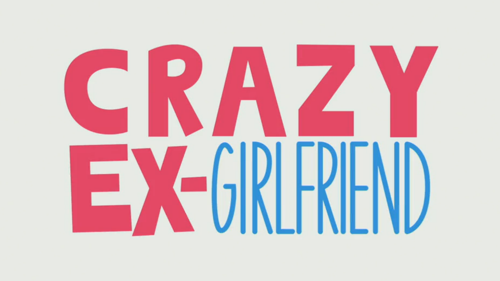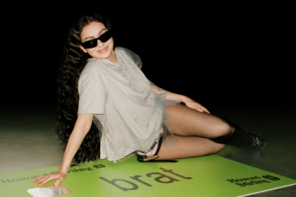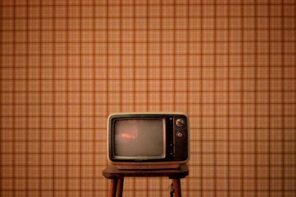How does one pick a favourite TV show? I really like this “romance with wacky hijinks and tangled love triangles.” Another favourite is this “harrowing drama about a woman’s struggle with mental illness.” Also dear to me is a “musical comedy that pastiches everything from Shakira to Sondheim.” Crazy Ex-Girlfriend delivers all three shows in one, smashing stereotypes and stigma not with a clenched fist, but with jazz hands.
Created by Aline-Brosh McKenna (screenwriter of The Devil Wears Prada) and co-produced and starring Rachel Bloom (previously YouTube famous for her vulgar and viral music videos), Crazy Ex-Girlfriend follows Rebecca Bunch, an Harvard-educated young woman working as a corporate lawyer in Manhattan. She is stressed and depressed, until one day she bumps into her old childhood boyfriend, Josh Chan (Vincent Rodriguez III) while he is visiting New York. Abandoning a high-paying job, she decides to follow her ex to his hometown in West Covina, California. There she starts life anew at a different firm and plots to win Josh back, all while frantically insisting to everyone she meets that she did not just move coasts to be closer to her old crush (she did.)
Simply put, Crazy Ex-Girlfriend should be first on your watchlist, and there’s a lot I could delve into about why. I could talk about how the showrunners deconstruct the trope of the “hysterical” woman, making you sympathize and understand Rebecca even as she resorts to borderline criminal behaviour in her pursuit of Josh. I could talk about the show’s hunky love interest, and how he is a milestone for representation of Asian-American men on television. I could even talk about the show’s dismal ratings—how, despite critical acclaim and a Golden Globe award for its lead actress, it somehow remains one of the least watched shows on network television, barely hanging on as it inches towards its final few episodes this spring.
Instead, I want to focus on the single ingredient that makes Crazy Ex-Girlfriend and its self-aware comedy so explosively good: the music. Every episode features two to three songs—all of which are uploaded to YouTube before every episode—written by a team spearheaded by Rachel Bloom, Jack Dolgen, and Adam Schlesinger. Four seasons and over a hundred music videos in, the showrunners continue to outdo themselves with resounding wit and creativity.
When Rebecca first arrives to West Covina, she sings a “Good Morning, Baltimore”-inspired anthem about her new home, ending with her suspended mid-air on a giant pretzel. It’s an obvious testament to her delusion, insisting that strip malls and pretzel stands are somehow what draws her to this small town, not Josh. Yet the dissonance between Rebecca’s joyous belting and the audience’s knowledge of her instability makes for excellent comedy.
Another highlight of the first few episodes is when Rebecca meets a bartender named Greg (Santino Fontana) who becomes a secondary love interest. He begs Rebecca to “Settle For Me” in a black-and-white ball dance, a stylistic nod to dreamy duets between Fred Astaire and Ginger Rogers from the 1930s. “I’m like Solange to Beyonce,” croons a tuxedo-clad Greg in a catchy tune of self-deprecation and tap dancing.
Yet the dissonance between Rebecca’s joyous belting and the audience’s knowledge of her instability makes for excellent comedy.
I also love the show’s grasp on Rebecca’s Jewish-American background. In “JAP Battle,” Rebecca raps against her childhood nemesis, Audra Levine. At one point, Rebecca stops the parade of sick burns and Yiddish puns to consider how the two womens’ mothers enabled their rivalry as kids, exclaiming, “We were egged on like Seder plates!” (She also ends a verse with the line, “Sheket-Bevaka-shut-the-f*ck-up.” It’s genius.)
Crazy Ex-Girlfriend uses humour and music—most often in tandem—to make you sympathize with the kind of character most romantic comedies teach you to hate. The writers use their pitch-perfect voices to discuss taboo topics with both irreverence and care. The first season alone tackles modern feminism, bisexual erasure, and the discomfort of hookup culture—all through song and dance.
More saliently, as we learn more about Rebecca and the roots of her unhealthy behaviour, the show moves beyond its rom-com premise and becomes a rallying cry for destigmatizing mental illness. Without giving much away, Crazy Ex-Girlfriend transitions into a story foremost about Rebecca trying to achieve self-love; only thereafter does she care about any romance. This is a theme that feels especially resonant in our overstressed, Tinder-swiping age.
Of course, there are still some sour notes. While Rachel Bloom pours herself into the protagonist, the writers do not afford the supporting cast as much depth or character development. As a result, episodes focusing more on the secondary characters tend to droop. Also, while McKenna, Bloom, and company are committed to accurately depicting the bumps in Rebecca’s road to healing, watching our heroine slip back into bad habits for the purposes of a one-episode plot can be frustrating.
As we learn more about Rebecca and the roots of her unhealthy behaviour, the show moves beyond its rom-com premise and becomes a rallying cry for destigmatizing mental illness.
In one of the later episodes, Rebecca prepares to receive a new diagnosis from a psychiatrist. Overflowing with optimism, she struts into a hospital wearing a floral yellow sundress. One lyric from this number has stayed with me well past the episode’s air date. Rebecca sings about other recently diagnosed patients, “Perfect they’re not, but at least they know who they are.”
Imperfect though it may be, Crazy Ex-Girlfriend is a show that truly knows itself. I will be heartbroken after the finale airs; still, I hope many others will neglect their upcoming midterms and take their first trip to West Covina sometime soon. Not just for Josh, but for a show that will leave you humming, laughing, and questioning ever calling another person “crazy” again.








